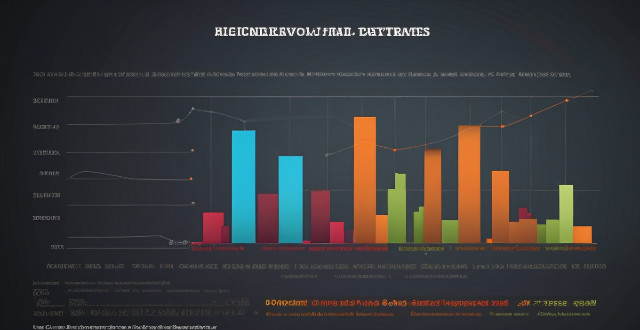Company Capital

What are the tax implications of receiving venture capital investment ?
Receiving venture capital investment can have significant tax implications for a startup company, including the treatment of investment proceeds as ordinary income and potential valuation issues. Tax credits and incentives may be available, and exit strategies should be evaluated for their tax consequences. Additional accounting and reporting requirements may also arise. It is important to work with a qualified tax professional to ensure compliance with tax laws and maximize the benefits of venture capital investment.

What are the key factors to consider when looking for venture capital investment ?
When seeking venture capital investment, entrepreneurs should consider factors such as a strong business plan, traction and growth potential, an experienced management team, competitive advantage, and financial health. A well-crafted business plan should include market analysis, financial projections, and an exit strategy. Traction can be demonstrated through customer acquisition, revenue growth, or product development milestones. An experienced management team with relevant expertise in the industry is also crucial. Competitive advantage can be showcased through a unique selling proposition, intellectual property, or market differentiation. Finally, maintaining financial health and clearly defining funding needs are essential for securing venture capital investment. By considering these key factors, entrepreneurs can increase their chances of success in fundraising efforts and overall business growth.

What is the difference between a bond and a stock ?
Bonds and stocks are two different types of financial instruments that companies use to raise capital. While both are used for funding, they have distinct differences in terms of ownership, returns, risks, and other factors. Here are some key differences between bonds and stocks: - Bonds represent debt and provide regular interest payments with a fixed maturity date, while stocks represent equity and offer potential dividends and capital appreciation without a set maturity date. - When you buy a bond, you are essentially lending money to the issuer (usually a company or government). In return, you receive a bond certificate that represents your loan. You do not own any part of the company; you are simply a creditor. - When you buy a stock, you become a part owner of the company. This means you have a claim on the company's assets and earnings, as well as a say in how the company is run through voting at shareholder meetings. - The primary return from owning a bond comes from interest payments made by the issuer. These payments are usually fixed and paid at regular intervals until the bond matures, at which point the principal amount is repaid. - The return on stocks comes from dividends (if the company chooses to pay them) and capital gains (the increase in the stock price over time). Stock prices can be volatile, so the potential for high returns is greater than with bonds, but so is the risk. - Generally considered less risky than stocks because they offer a fixed rate of return and have priority over stockholders in the event of bankruptcy. However, there is still risk involved, especially if the issuer defaults on its payments. - More risky than bonds because their value fluctuates with market conditions and the performance of the underlying company. If the company does poorly, the stock price may fall significantly, and investors could lose part or all of their investment. - Have a defined maturity date when the principal amount must be repaid by the issuer. This provides a clear timeline for investors. - Do not have a maturity date; they exist as long as the company remains in business. Investors can sell their shares at any time in the open market. - Interest income from bonds is typically taxed as ordinary income. - Long-term capital gains from stock sales may be taxed at a lower rate than ordinary income, depending on the tax laws of the jurisdiction.

What are some alternative sources of funding for startups besides venture capital ?
Startups have various funding options beyond venture capital, including angel investors, crowdfunding, friends and family, bank loans, government grants, strategic partnerships, and bootstrapping. Each method has its advantages and drawbacks, so startups should carefully consider their options based on their specific needs and goals.

How do private equity firms make money ?
Private equity firms generate profits through various strategies, includingPrivate equity firms generate profits through various strategies, includingLBOs), growth capital including leveraged buyouts (LBOs), growth capital investments, and venture capital investments. LBOs involve acquiring companies with debt and equity financing to improve their value for a higher sale price or public offering. Growth capital investments provide funding to established companies with growth potential but not ready for an LBO or public offering. Venture capital investments target early-stage startups with high growth potential but limited track records. Private equity firms manage risk by diversifying across industries and geographies, conducting thorough due diligence, actively involving portfolio company management, and monitoring financial performance metrics. By balancing risk and reward, they can achieve consistent returns over time while minimizing losses from individual investments.

What is the relationship between private equity and venture capital ?
Private equity and venture capital are investment strategies with similarities but distinct differences in focus, stage of investment, and type of companies they invest in. Private equity firms typically invest in established companies looking to expand or restructure, often in industries such as healthcare, technology, and real estate. Venture capitalists primarily invest in startups and early-stage companies with high growth potential, often in innovative technologies and new business models. Private equity investments are usually made in later stages of a company's development, while venture capital investments are made at earlier stages. Private equity firms tend to invest in larger, more mature companies with established revenue streams and proven business models, while venture capitalists invest in smaller, younger companies with high growth potential but also higher risks due to their unproven business models. It is important for investors to understand these differences when considering which type of investment strategy aligns with their goals and risk tolerance.

How do I file a claim with my sports insurance company ?
Filing a claim with your sports insurance company is important to ensure compensation for injuries or damages during sports activities. To file a claim, gather necessary documents, contact the insurance company, fill out the claim form accurately, submit it with supporting documents, and follow up on the claim's progress. Staying organized and persistent can increase chances of receiving deserved compensation.

How quickly can I get reimbursed by my travel insurance company ?
The time it takes to get reimbursed by your travel insurance company depends on the type of claim you are filing and the policies of your insurance provider. Emergency medical claims can be processed within a few days to a week, while non-medical claims can take longer depending on the nature of the claim and the required documentation. To expedite the process, it's important to read your policy carefully, keep all receipts and documentation, contact your travel insurance company promptly, submit complete and accurate information, and follow up on your claim if necessary. By following these tips, you can help ensure a smoother and faster reimbursement experience.

What is private equity ?
Private equity (PE) is an investment strategy where funds pool capital from institutional investors to directly invest in companies. This involves buying out existing shareholders or providing growth capital, with the aim of improving operations and selling at a profit. Key features include long-term investments, active ownership, diverse strategies, and a clear exit strategy. Types of PE include leveraged buyouts, venture capital, growth equity, mezzanine financing, and secondaries. Private equity firms play roles in due diligence, deal structuring, operational improvement, financial management, and exit planning. Benefits of PE include economic growth, job creation, and operational expertise, while criticisms include high debt loads, short-term focus, and potential negative labor impacts.

Are there any advantages to using a tax refund service company instead of doing it myself ?
Using a tax refund service company offers several advantages, including time-saving, accuracy, expertise, convenience, and peace of mind. These services can help maximize refunds or minimize tax liability by ensuring accurate tax preparation and staying up-to-date with changing tax laws and regulations.

How does sports sponsorship affect the overall perception of a company or brand ?
Sports sponsorship can significantly impact the overall perception of a company or brand, both positively and negatively. Positive effects include increased brand awareness, association with positive attributes, and customer loyalty and engagement. Negative effects may arise from negative associations, costly investments, and limited target audience. Companies must carefully consider the potential benefits and risks before committing to sports sponsorships.

What is the typical structure of a private equity deal ?
The typical structure of a private equity deal involves several key components, including due diligence, investment structure, capital structure, governance and control, exit strategy, and legal agreements. The process begins with thorough due diligence to evaluate the target company's financial health, operational efficiency, market position, and growth potential. The investment structure defines how the PE firm will invest in the target company, while the capital structure determines how the target company will be financed after the PE firm's investment. Governance and control involve securing representation on the company's board of directors, gaining certain rights to veto major decisions, and bringing in new management or working closely with existing management to drive performance improvements. A successful private equity deal also requires a well-defined exit strategy for the PE firm to realize its investment return. Lastly, various legal agreements are put in place to govern the relationship between the PE firm and the target company.

What is the stock market and how does it work ?
The stock market is a financial ecosystem where investors can buy and sell ownership shares of publicly traded companies. Companies use it to raise capital, while investors aim to share in the company's success. Prices of stocks are determined by supply and demand, influenced by various factors including company performance, market trends, and economic conditions. The market is regulated to protect investors and maintain fairness. Investing in stocks comes with risks but also offers potential rewards, making it a popular choice for long-term investments.

How long does it typically take to secure funding from a venture capital firm ?
Securing funding from a venture capital firm involves several stages, including preparation, initial meetings and screening, negotiation and terms sheets, and closing and funding. The timeframe for each stage can vary depending on factors such as the industry, company growth stage, VC firm investment criteria, and market conditions. The preparation phase involves researching and identifying suitable VC firms, preparing pitch materials, and networking and outreach. The initial meetings and screening stage includes first meetings with VC firms and due diligence and screening. The negotiation and terms sheets phase involves investment terms negotiation and signing the terms sheet. Finally, the closing and funding stage includes legal and financial due diligence and receiving funding and post-investment support.

In what ways can bad credit management lead to financial difficulties for a company ?
Poor credit management can lead to cash flow issues, increased costs, damage to supplier relationships, negative impact on business reputation, and legal implications. To mitigate these risks, companies should establish clear credit policies, conduct regular credit checks, maintain open communication with customers, leverage technology for payment tracking, and consider third-party services or credit insurance.

How much equity should I be prepared to give up for investment in my startup ?
When determining equity allocation for startup investment, consider theWhen determining equity allocation for startup investment, consider the type of investor, company value Finally, consider the company's goals and vision when deciding on equity allocation, as giving up too much equity can limit future options and affect control over decision-making.

Which city is known as the capital of extreme sports ?
Queenstown, New Zealand, is renowned as the "Capital of Extreme Sports" due to its variety of adrenaline-fueled activities and stunning natural scenery. It offers bungee jumping, skydiving, jet boating, paragliding, and mountain biking. The city's beauty enhances the adventure experience, and it hosts prestigious events like the Queenstown Bike Festival and GoPro Mountain Games.

What is the role of a private equity firm in a company's growth ?
Private equity firms contribute to a company's growth by providing capital, strategic expertise, and operational support. They invest significant amounts of capital into companies for expansion, refinance debt, offer industry experience and management consulting services, assist in talent acquisition, and help integrate new technologies. This collaboration helps companies navigate challenges, seize opportunities, and achieve success.

What are the tax implications of investing in cryptocurrencies ?
Investing in cryptocurrencies can have significant tax implications that investors should be aware of. Here are some key considerations: ### Capital Gains Tax Capital gains tax is a tax on the profit realized on the sale of an asset. When you sell your cryptocurrency for more than you paid for it, you may owe capital gains tax on the difference between the purchase price and the selling price. The tax rate depends on your income level and how long you held the asset before selling it. - Short-term capital gains tax applies to assets held for less than a year and is taxed at your ordinary income tax rate. - Long-term capital gains tax applies to assets held for more than a year and is typically taxed at a lower rate than short-term gains. ### Income Tax If you earn income from mining or staking cryptocurrency, you may owe income tax on that income. Mining involves using computer processing power to validate transactions on the blockchain and earn new coins as a reward. Staking involves holding coins in a wallet and earning interest or rewards for supporting the network. Both activities can generate taxable income. ### Tax Deductions You may be able to deduct certain expenses related to your cryptocurrency investments, such as trading fees, software costs, and other expenses necessary to maintain your investment. However, these deductions are subject to specific rules and limitations, so consult with a tax professional to ensure you qualify. ### Reporting Requirements The IRS requires taxpayers to report all cryptocurrency transactions on their tax returns, including purchases, sales, trades, and income earned from mining or staking. Failure to report these transactions can result in penalties and interest charges. It's essential to keep accurate records of all your cryptocurrency transactions throughout the year. ### Tax Planning Strategies To minimize your tax liability when investing in cryptocurrencies, consider implementing tax planning strategies such as: - **Holding Assets Long-Term**: By holding your cryptocurrency for more than a year before selling it, you can take advantage of lower long-term capital gains tax rates. - **Harvesting Losses**: If you have losses on some of your cryptocurrency investments, you can offset those losses against gains made on other investments to reduce your overall tax liability. - **Donating Cryptocurrency to Charity**: Donating cryptocurrency to a qualified charity can provide a tax deduction while also supporting a cause you care about. In conclusion, investing in cryptocurrencies has several tax implications that investors should be aware of and plan for accordingly. It's essential to stay informed about changing regulations and consult with a tax professional to ensure compliance with IRS requirements.

Are there any risks associated with investing in a celebrity-founded company ?
Investing in a celebrity-founded company carries several risks, including lack of experience, overreliance on celebrity status, limited diversification, legal and regulatory risks, and market volatility. It is important for investors to carefully consider these risks before making any investment decisions and to conduct thorough research and consult with financial advisors to ensure that their investments align with their overall financial goals and risk tolerance levels.

What are some examples of successful TCFD implementation by companies ?
The Task Force on Climate-related Financial Disclosures (TCFD) was established by the Financial Stability Board (FSB) in 2015 to develop a framework for voluntary climate-related financial risk disclosures. Since then, many companies have successfully implemented the TCFD recommendations, providing stakeholders with valuable information about their exposure to climate-related risks and opportunities. Here are some examples of successful TCFD implementation by companies: **Unilever** has conducted a comprehensive assessment of its climate-related risks, including transition and physical risks. The company has identified potential impacts on its supply chain, operations, and products due to climate change. Unilever publishes detailed reports on its website, outlining its greenhouse gas emissions, water withdrawal, and waste generation. The company also discloses its progress toward sustainability targets, such as reducing carbon emissions and increasing renewable energy usage. Unilever actively engages with stakeholders, including investors, customers, and employees, to understand their concerns and expectations regarding climate-related issues. This helps the company to identify and prioritize areas for improvement in its sustainability efforts. **Iberdrola** has integrated climate risk management into its overall risk management framework. The company assesses both short-term and long-term climate-related risks and opportunities, considering factors such as changes in regulations, market trends, and technological advancements. Iberdrola provides detailed information about its greenhouse gas emissions, energy consumption, and renewable energy production. The company also discloses its strategies for adapting to climate change, such as investing in renewable energy projects and developing new technologies to reduce emissions. Iberdrola engages with stakeholders through various channels, including annual sustainability reports, social media, and public forums. The company seeks feedback from stakeholders to improve its sustainability performance and ensure that it aligns with societal expectations. **Microsoft** has conducted a thorough assessment of its climate-related risks, focusing on both direct and indirect impacts. The company has identified potential threats to its infrastructure, supply chain, and customer demand due to climate change. Microsoft publishes detailed reports on its greenhouse gas emissions, energy consumption, and water usage. The company also discloses its progress toward sustainability targets, such as reducing carbon emissions and increasing renewable energy usage. Microsoft engages with stakeholders through various channels, including annual sustainability reports, social media, and public forums. The company seeks feedback from stakeholders to improve its sustainability performance and ensure that it aligns with societal expectations.

How do negative product reviews affect a company's reputation ?
Negative product reviews can have a significant impact on a company's reputation, affecting everything from sales and profits to employee morale and customer loyalty. Here are some ways in which they can affect it: 1. Loss of Trust: Negative reviews can erode the trust that customers have in a company, making them less likely to do business with them in the future. It can also make potential new customers hesitant to try the company's products or services. 2. Decreased Sales: Negative reviews can lead to decreased sales as customers may be discouraged from purchasing the product. This can result in lost revenue for the company, which can ultimately harm its financial stability. 3. Damage to Brand Image: Negative reviews can damage a company's brand image, making it harder for them to attract new customers or retain existing ones. It can also make it more difficult for the company to launch new products or expand into new markets. 4. Loss of Market Share: If a company's reputation is damaged by negative reviews, it can lose market share to competitors who have better reviews and reputation. This can lead to a decline in profits and potentially even bankruptcy if the company is unable to recover. 5. Difficulty Hiring Talent: Negative reviews can make it harder for companies to attract top talent, as potential employees may be wary of working for a company with a poor reputation. This can limit the company's ability to grow and innovate, further damaging its reputation and financial stability. In conclusion, it is essential for companies to take steps to address negative reviews and work to improve their overall reputation to avoid these consequences.

In what ways can investing in stocks contribute to my wealth growth ?
Investing in stocks is a well-known strategy for wealth growth, offering several advantages that can contribute to your financial prosperity. Here's a detailed look at the ways stock market investments can boost your wealth: 1\. **Capital Appreciation**: Over time, the value of stocks can increase as the company grows and becomes more profitable. This growth translates into capital appreciation for investors, potentially leading to significant returns on investment. Some companies offer dividends, which are payments made to shareholders from the company's profits. When these dividends are reinvested back into the stock, it can lead to compounded growth, further enhancing your investment's value. 2\. **Compound Interest**: By reinvesting dividends and capital gains, you leverage the power of compound interest, where your earnings generate their own earnings over time. The longer you stay invested, the more pronounced the effects of compounding become, making early and consistent investments a key factor in achieving substantial wealth growth. 3\. **Diversification**: Diversifying your portfolio across different stocks and sectors can help mitigate risks associated with any single investment. This strategy allows for stable growth by offsetting losses in some areas with gains in others. By investing in a variety of sectors, you can take advantage of cyclical trends and shifts in the economy, potentially maximizing returns by being in the right sector at the right time. 4\. **Liquidity**: Stocks are generally liquid assets, meaning they can be converted into cash quickly without significant loss in value. This liquidity provides flexibility for investors who may need access to their funds at short notice. Publicly traded stocks have a ready market, ensuring that there's usually someone willing to buy or sell, maintaining an active and efficient market environment. 5\. **Ownership Stake**: Owning stocks means having a piece of the company you invest in. This ownership stake gives you voting rights and a say in company matters, depending on the number of shares you hold. Dividends provide a regular income stream that can supplement other sources of revenue, especially beneficial for retirees or those seeking passive income. 6\. **Inflation Hedge**: Stocks represent tangible assets and real businesses that can adjust their prices in response to inflation. This ability makes them a potential hedge against inflationary pressures. Over time, as companies raise prices to combat inflation, their profits (and consequently, stock values) can increase, helping to preserve or even grow your purchasing power. 7\. **Leverage Potential**: Some investors use margin trading to leverage their investments, essentially borrowing money to buy more stocks. While this increases risk, it can also amplify returns when the market is favorable. Options allow investors to control a larger number of shares with a smaller initial investment, providing another layer of leverage for those who understand the complexities and risks involved. Overall, investing in stocks offers numerous avenues for wealth growth, from capital appreciation and compound interest to diversification and liquidity benefits. By strategically selecting stocks and managing your portfolio wisely, you can position yourself for long-term financial success. However, it's essential to conduct thorough research, consider your risk tolerance, and possibly consult with a financial advisor to make well-informed investment decisions.

What are the key factors to consider when analyzing the stock market ?
Analyzing the stock market involves considering economic indicators, company financials, industry trends, market sentiment, technical analysis, and risk management. Economic indicators provide insights into the overall health of the economy, while company financials assess the financial health of individual companies. Industry trends help understand the prospects of the industry in which a company operates. Market sentiment can impact stock prices, even if it doesn't necessarily reflect the underlying fundamentals of a company or the economy. Technical analysis involves studying past price patterns to predict future movements. Proper risk management is crucial when investing in the stock market, including diversification, stop-loss orders, position sizing, and evaluating the potential rewards against the risks involved in each trade.

How do private equity firms exit their investments ?
Private equity firms employ various exit strategies to realize the value created during their investments, including IPOs, trade sales, secondary sales, recapitalizations, management buyouts, and write-offs. Each strategy has its own advantages and disadvantages, and PE firms must carefully consider which option will maximize their return on investment while minimizing risks.

What factors influence the performance of tech stocks ?
Tech stocks are influenced by macroeconomic conditions, industry-specific factors, and company-specific factors. Macroeconomic conditions include interest rates and economic growth. Industry-specific factors include regulatory changes and technological advancements. Company-specific factors include financial health and leadership and management.